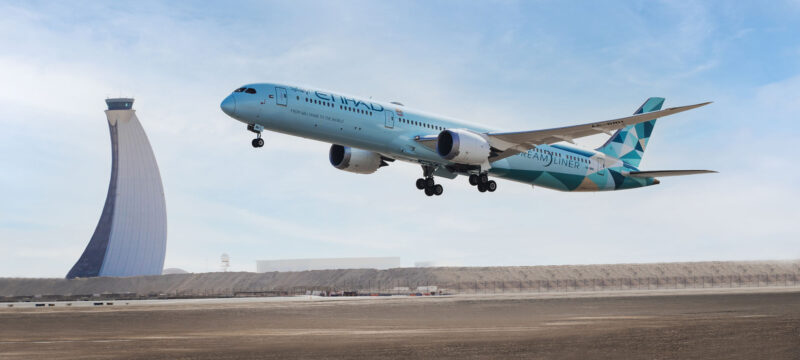Achieved a 26% reduction in carbon dioxide emissions per RTK

Etihad Airways has published its annual sustainability report, detailing the company’s commitment to sustainability and its progress towards its sustainability goals.
In 2022, the airline achieved an impressive 26% reduction in carbon dioxide emissions per Revenue Tonne Kilometre (RTK) to 482g compared to 2019 baseline.
Etihad’s sustainability strategy is based on principles of achieving emissions reductions through in-sector measures, aligning with industry voluntary roadmaps and frameworks, collaborating with UAE industrial ecosystems, remaining transparent and proactive about sustainability issues, and continually developing a strategic roadmap for targets.
“Our sustainability strategy is built on a foundation of collaboration, transparency, and innovation, and we will continue to work with our partners, industry peers, and government agencies to drive positive change and lead the way towards a greener future for aviation,” stressed Antonoaldo Neves, CEO, Etihad Aviation Group.
Etihad 2023 sustainability highlights
*Etihad was the first foreign airline to receive SAF supply in Japan, in partnership with ITOCHU Corporation and Neste MY Sustainable Fuel.
*Etihad continued to work with key UAE stakeholders such as ADNOC, Masdar and Tadweer to develop SAF production capability in the UAE.
*Etihad in partnership with World Energy operated the first net-zero flight powered entirely by Sustainable Aviation Fuel (SAF) Book & Claim offsetting carbon dioxide emissions of 216 metric tonnes through sustainable aviation fuel credits.
*Continued efforts for Wildlife, Conservation and Protection of Biodiversity and Animal Welfare
Planted 68,916 Mangrove trees as part of Etihad Mangroves Forest project.
